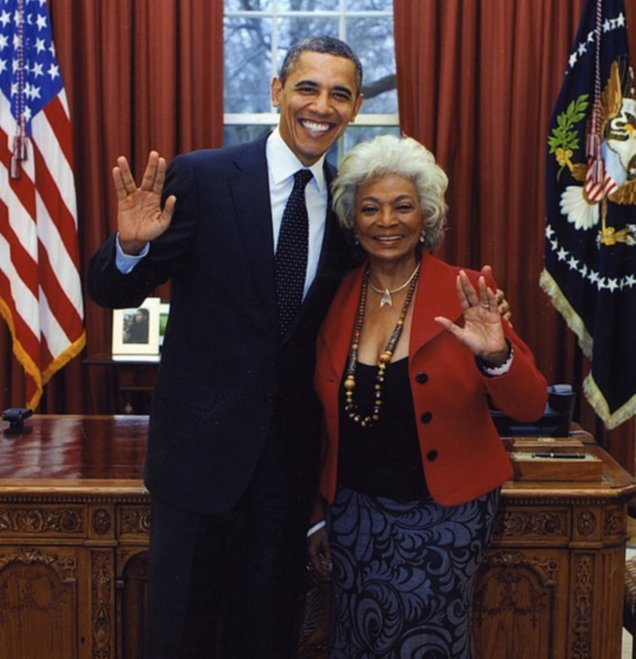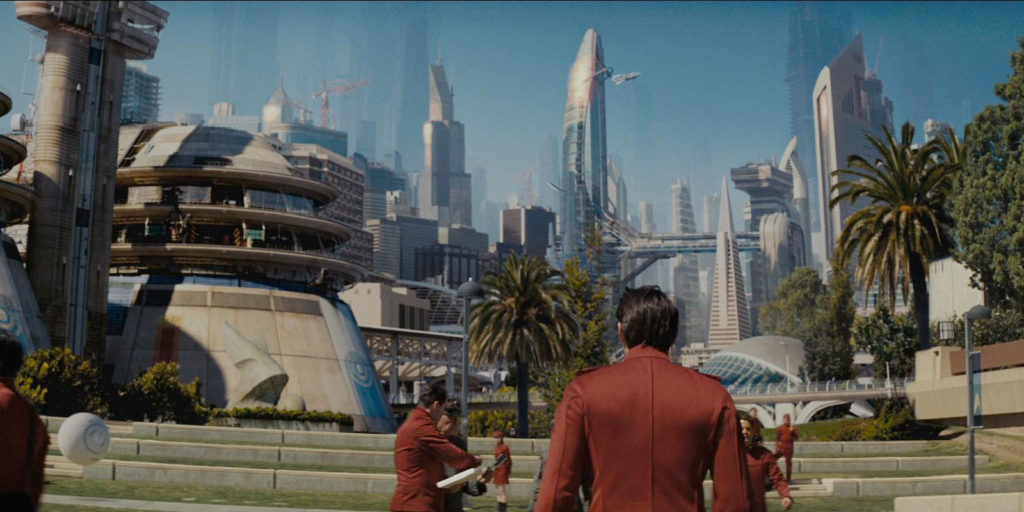
 Civil unrest, hateful speeches from leaders and the persecution of minorities surrounded the premiere of Star Trek on September 8, 1966. Two years later, two leaders of the civil rights movement would be gunned down and the United States continued to be mired in Vietnam with no end clearly in sight. During the late 1960s, the world was a mess. Then came Gene Roddenberry and his vision of a better future, where humanity worked together as one for the betterment of all. Aboard the starship Enterprise where all cultures, genders and species were defined by their abilities. They would explore space, which Roddenberry cleverly used to explore the human condition, offering commentary on the world in which people lived, disguising it as science fiction.
Civil unrest, hateful speeches from leaders and the persecution of minorities surrounded the premiere of Star Trek on September 8, 1966. Two years later, two leaders of the civil rights movement would be gunned down and the United States continued to be mired in Vietnam with no end clearly in sight. During the late 1960s, the world was a mess. Then came Gene Roddenberry and his vision of a better future, where humanity worked together as one for the betterment of all. Aboard the starship Enterprise where all cultures, genders and species were defined by their abilities. They would explore space, which Roddenberry cleverly used to explore the human condition, offering commentary on the world in which people lived, disguising it as science fiction.
Civil unrest, hateful speeches from leaders and the persecution of minorities surrounds the launching of the franchise’s next iteration, Star Trek: Discovery. The United States is embroiled in one of the most divisive presidential elections in its history, where there may actually be no winner where the country itself is concerned. And the nation is entangled in Iraq and Afghanistan with no end clearly in sight. Fifty years later, where does Roddenberry’s vision of a better future, of humanity working together as one, stand?
It could be argued that society needs Roddenberry’s vision of a hopeful future today more than ever. It has only been 30 years since he gave his Hollywood Star acceptance speech, where he referred to humanity as “childlike.” It would be hard to expect humanity to move past adolescence in 30 short years after taking thousands just to reach that stage.
Fifty years after President Lyndon B. Johnson signed the Civil Rights Act, which outlawed discrimination based on race, color, religion, sex or national origin, there is a major political party presidential nominee running on a platform that is the opposite of that law. African Americans are still oppressed in certain parts of the country, and now must be fearful of their own lives (as they were in the late 1960s). Plus, entirely new minorities of this country our now being persecuted, for their sexual identification, origin and religious beliefs.

Change is sometimes painful, even at the slow rate in which moves. Yet, since the election of President Barack Obama, the United States has legalized same-sex marriage and looked to protect the rights of all LGBT individuals. President Obama is an admitted Star Trek fan, and one can not help but see how Roddenberry’s IDIC (Infinite Diversity in Infinite Combinations) has impacted him as a person.
Since its debut 50 years ago, and with its subsequent spin-offs like The Next Generation, Deep Space Nine, Voyager and Enterprise, new generations have been influenced by Roddenberry’s vision of a hopeful future, where gender and race do not define individuals. A new generation of women have gravitated towards leadership positions and careers in science after Kate Mulgrew’s Captain Kathryn Janeway guided Voyager, which was 30 years after Nichelle Nichols’ Uhura showed African-American women being portrayed in a leadership role among men, inspiring that generation to strive for careers that prior seemed unrealistic and out of reach, like the stars.
It is always darkest before the dawn, and the world is changing at a rapid pace socially as it had 50 years ago. Those who still grasp at old stereotypes and ideologies are fighting to keep the world as it is, yet it is slipping through their fingers. Maybe society’s adolescent years will not last as long as its childlike years? For proof, all one needs to do is look at the other major party nominee for President of the United States, who eight years after the first African-American was elected and reelected to office, the first woman could be following. Somewhere, Roddenberry is smiling at the progress of humanity, however slow it might be.




![[REVIEW] X-FACTOR #1](https://geekd-out.com/wp-content/uploads/2024/08/xf-1-feat-150x150.jpg)